Text
Information Technology Law LLM: final thoughts

Time flew so fast that it doesn't even feel like one year has passed since I started my LLM journey and, in parallel, this blog. When I began, online learning was consolidated, but nobody could have imagined that it would become a rule due to a pandemic. And because the University of Edinburgh already has many years of online teaching experience, my academic calendar was not affected, only postponed for a few weeks.
And now, I must share some final thoughts with you.
1) Choose a concentration that you like to study for your LLM. It will be more pleasant if you do so.
2) Enjoy your time. It will be demanding, you will have to read and write a lot, but it will be fun and it will be over fast. And you will miss it.
3) Plan your time wisely. Establish priorities. Keep your planning.
4) Be curious. Ask questions. Study beyond the essential reading.
5) If you are looking for professional opportunities, make contacts, interact with your peers, establish connections, invest time in networking.
6) If you are looking for academic opportunities or want to pursue a Ph.D. in the future, look for "call for papers", conferences, and research opportunities. Establish academic connections.
If you ask me if the Information Technology Law LLM is worth it, I believe it is. As I have posted before, I have studied the most interesting subjects in a relatively new area of the law. I would not be able to take those specific courses in Brazil. And even the one I thought would be the least interesting, Communications Law, ended up being one of the most fascinating. I loved all the courses that I took, and I love the knowledge I acquired. The professors are very experienced in their fields. I would do it all over again. If it interests you, read my previous posts on specific classes.
If one year ago we could say that online learning was not for everyone, now I have to say that everybody must adapt to online learning. I do believe that on-campus learning will be back gradually. Still, I also think that hybrid models will become more common, bringing new possibilities for students to take classes abroad or for universities to hire teachers worldwide. As a consequence, I believe the "new normal" will bring more competition to the market. For example, in Brazil, local universities will have to adapt and offer more quality and resources to students. Otherwise, students will do as I did and just take an online LLM at a world-class university from home. I don't even have to waste time in traffic! The weakest aspect of online learning is clearly the lack of networking resources, but I believe that universities will work on this problem.
When I started, I was looking for an online Ph.D., and I came across this LLM. Back there, I did not find an online Ph.D. that would suit me. I believe this is about to change. I think I will be able to find what I want for a Ph.D. faster than I imagined. I will start looking for it in a while.
Despite COVID, for me the last academic year was fun, it was enriching, and I would do it all over again.
7 notes
·
View notes
Text
Is a second LL.M. worth it?
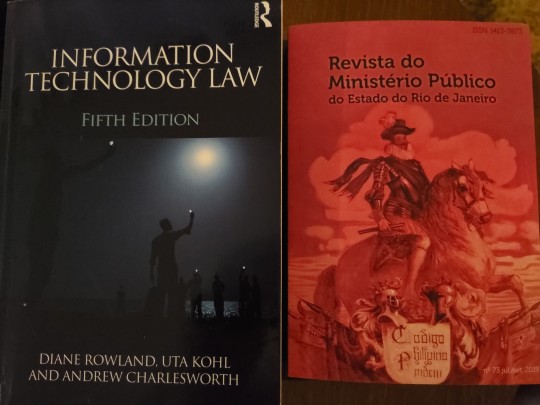
The Information Technology Law online LLM at the University of Edinburgh is the second LLM I am taking. I already have a master's degree in Theory and Philosophy of Law from Rio de Janeiro State University (UERJ), which I acquired in 2013.
Although you probably have never heard about it, UERJ is one of Brazil's most prestigious law schools. Currently, 2 of the 11 Brazilian Supreme Court judges have studied and are professors there. The selection process is by public exam. In other words, applicants have to read papers and books that are announced yearly and take a test about them according to the area of Law they want to study. People whose primary language is not Portuguese, also have to take a Portuguese test. The course is free, and scholarships offering additional monthly payments are available.
But it is not a world-renowned university as Edinburgh. Although UERJ Law School is highly regarded nationally, it does not even appear at international rankings, and teaching is in Portuguese. Therefore, for those who want an international career or are looking for more impact on their academic publications, it is not the best place to take an LLM.
Besides, six years after having finished my first master's, studying specifically the Information Technology Law LLM seemed like an excellent way to update my legal knowledge in a relatively new area of the Law. Besides, it is an area that lacks academic publication, with a lot of room to grow, and that I would be unable to study in Brazil.
So, regarding the question "is a second LLM worth it?", my answer is: I think it depends. It depends on your professional goals; it depends on the current stage of your career; it depends on where you are from; it depends on when and where you took the first one.
And why not going for a Ph.D., you may be wondering. Actually, as I have already posted, I was looking for a Ph.D. when I came across this LLM and chose to go for it. I still intend to take a Ph.D.. However, it would be better if I could take it remotely, without having to live abroad. This was already my preference since I am very attached to my family, and the desire to do so only grew with the pandemic. I do like to take short courses abroad, and I would be ok with spending short periods on campus for the Ph.D.. Still, I do not want to leave my home for long periods, and I believe that the moment we are going through may build the basis for this kind of mixed or remote education shortly.
What about you, what do you think? Have you taken or would you consider a second LLM? Comment!
0 notes
Text
The LLM Dissertation
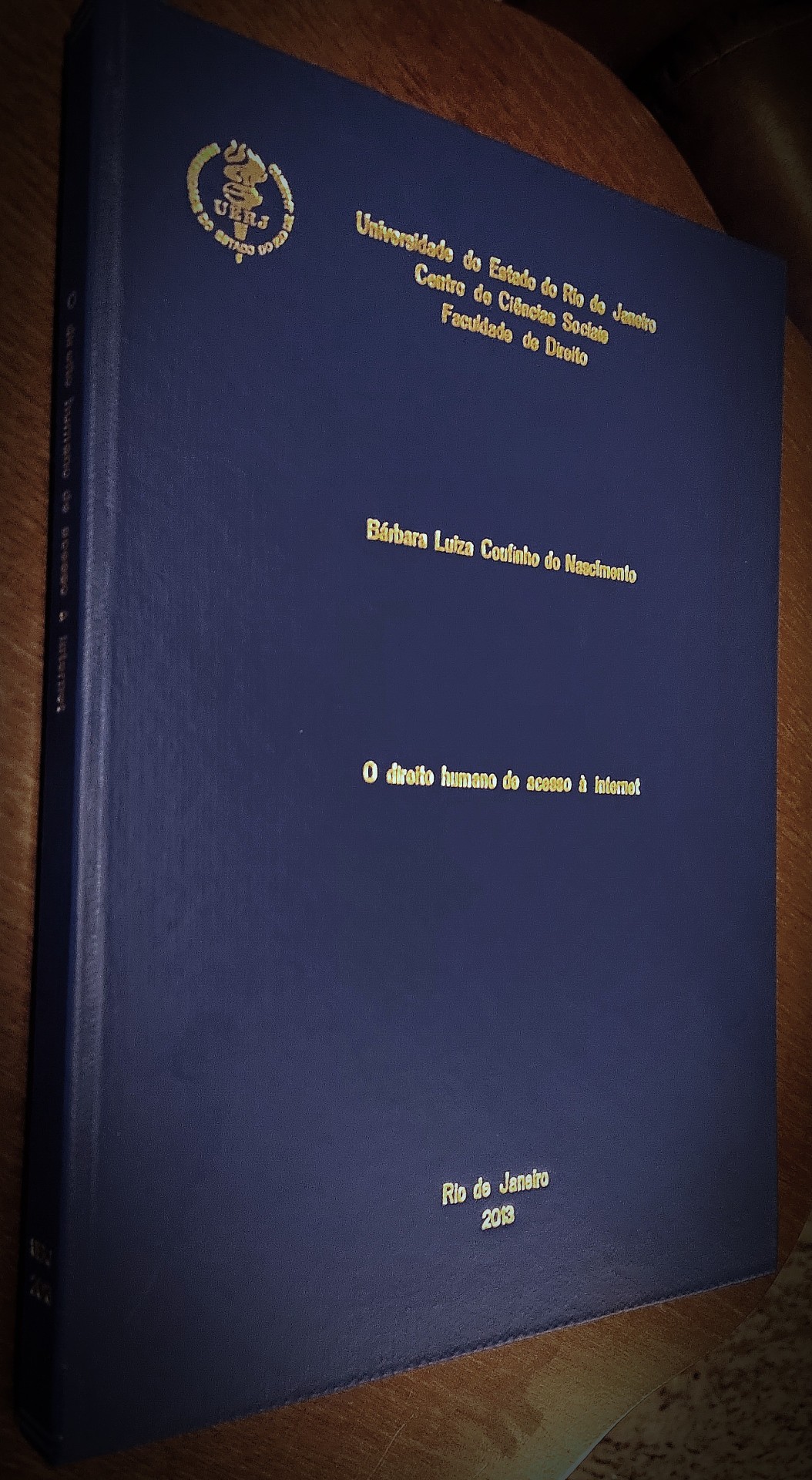
Not all LLM programs require students to write dissertations or long essays to earn their degrees. Some universities allow students to choose whether they want to write it or not.
I have a friend taking an LLM at The University of Melbourne (Australia), and she told me it is not needed there. I am aware that many universities from the USA offer both options, such as Berkeley, which has a Traditional and a Thesis Track.
At Rio de Janeiro State University (UERJ), I had to write a dissertation for my master's degree. The University of Edinburgh also demands it. But while at UERJ I was obliged to write in volume, the University of Edinburgh requires a different methodology: on the one hand, it limits the number of words, but on the other, it involves a prevalence of critical reasoning to merely descriptive elements.
The process of writing a dissertation may look frightening to some people, but I believe that by writing little by little, step by step, every student is able to reach the goal. I believe that the secret is to keep writing and rereading and rewriting it, establishing new connections and closing the gaps, until you reach the final product.
It is vital to choose a theme wisely. By wisely, I mean something that you like and a subject that you master. Otherwise, it will be boring, it will take longer, and you will not be able to present adequate critical reasoning.
Not all dissertations are written for publication. A dissertation is a piece of scientific writing. To publish it, you will need to attract an audience's interest.
Dissertation supervisors, tutors or advisors are also an essential element. Some universities allow students to choose, inviting professors to be their tutors. Others just assign them. The same goes for dissertations subjects: some programs enable students to choose it freely, and others demand them to select among a closed set of options.
As I have posted before, The University of Edinburgh offers a comprehensive set of online workshops to help students to write their dissertations. I did not have this kind of support at UERJ.
Sometimes you may have a "writer's block". Once again, do not be afraid: everybody has it at some point, I have had it many times. When this happens, I take some days to relax and think about something else. After, I reread everything and return renewed.
Also, some universities demand a "viva voce" defence. I had it at UERJ, where I had to orally present my thesis to three professors. But at The University of Edinburgh, the professors mark it without the defence, and the student is kept in anonymity. The viva voce defence breaks the anonymity. As I have also posted before, experiencing the different approaches between my on campus LLM at UERJ and my online LLM at ToE has been academic enriching.
Lastly, I believe that writing a dissertation with a tutor should be sought by any LLM student who wants to pursue a PhD in the future.
1 note
·
View note
Text
The Information Technology Lawyer
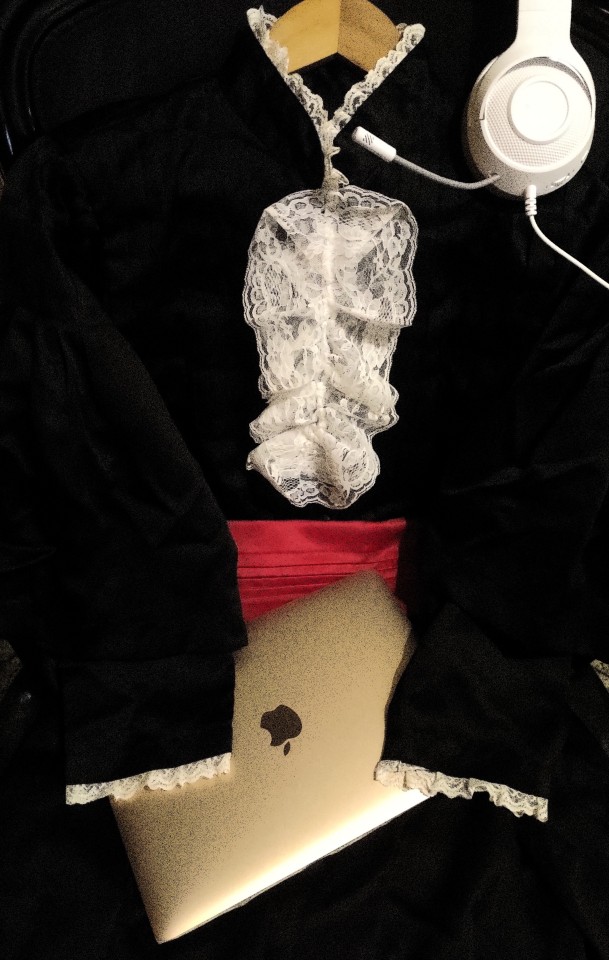
Is there a role for an Information Technology Lawyer in 2020?
At first glance, the question may look strange. If we are living in the Age of Information, in a more connected world than ever, why wouldn't there be? The answer is simple: because in the Age of Information, every lawyer must be something of an IT Lawyer and must have digital skills. In this context, the previous question may be re-written as: wouldn't the IT Lawyer be just a generalist? What makes this specialisation something different?
First, I believe it is all about the range of courses. You may study digital software taxation in a tax course, or digital currencies in banking law, or maybe smart contracts in business law, or cybercrime in criminal Law. But if you want to study all those topics together and others, such as robotics, artificial intelligence and telecommunications (think about the legal issues related to 5G), you must choose an LLM related to technology. Also, at least for me, the IT Law focus helps to achieve comprehensive legal reasoning on the subject and the courses complement each other.
Second, the fact that IT Law per passes many law domains does not make it less prominent, on the contrary, the field becomes more important, because it enables the IT Lawyer to work on many areas of the Law.
Finally, the LLM student may choose to focus on subareas, according to their preferences and the skills.
Regarding my motivation, I started taking this LLM for personal satisfaction and academic enrichment. Since I am a public servant, it does not grants me more money, and since I have a lifelong job, I am not looking for openings elsewhere. However, I am having opportunities to apply my learnings to my job, and people have been inviting me to give seminars and lectures or to write book chapters about IT Law topics.
Therefore, although the "Master of Laws" in "Information Technology Law" is not a title that will substantially change my professional status, it has been changing my academic standing. The fact that I already have a master's degree in Brazil, in Theory and Philosophy of Law, seems to help, but it looks clear that it is the focus on technology that people want to hear about. In other words, it is clear that there is a shortage of specialists in this field.
And if I were a lawyer, I don't think it would be difficult to find a job at a reputable law firm after this LLM.
Lastly, with the substantial increase in law and technology LLMs, before choosing, I would recommend interested students to look for feedback from alumni, as well as the overall reputation of the university and the law school, in case there is not yet time to assess the course's status.
0 notes
Text
Online Workshops

Besides the regular courses, The University of Edinburgh offers many online workshops about a variety of themes.
I attended sessions on digital skills, data analysis, data science and information security, in which I learned about subjects like "ransomware"; "hacking, cybercrimes and the movies"; "social media marketing"; and "collecting social media data". In the latter, I learned how to use FacePager along with RStudio to collect and present social media data for research. I believe it was the busiest session, and it got fully booked very quickly.
I have also attended excellent workshops on the proper use of the English language, which addressed issues like "effective academic writing", "punctuation" and how to write "abstracts and tiny texts" and "literature reviews". I believe they have improved the quality of my academic writing, making me aware of specific details that differentiate normal from scholarly writing.
Currently, I am focusing my time and effort on workshops about the process of writing the final dissertation. About this topic, sessions on "critical thinking", "critical reading and writing", "dissertations for publications", "research planning" and "beating writer's block" caught my attention.
Workshops are held live through Blackboard Collaborate. Therefore, contrary to regular online courses, they are not asynchronous. Sometimes this is a problem for me since the time zone difference between Rio de Janeiro (Brazil) and Edinburgh (Scotland) is four hours. It means that if workshops are held early in the morning in Edinburgh, they will too soon for me in Rio. However, since most of the sessions that interested me were offered in the afternoon in Edinburgh, it was not such a big problem.
Interestingly, the workshops are also held during online vacation periods. The activity is not mandatory, but I believe it does help students to receive adequate instruction.
And there are other workshops that look exciting and deal with essential digital skills which I believe every post-graduation student must have nowadays. I highlight "Introduction to Python", "Python for Data Science", "getting started with Microsoft teams", "Introduction to Microsoft Office 365", and "Learning Adobe Spark". All LLM students may attend those sessions, but some are limited to one participation.
Regarding extra online activities, the University also offers access to LinkedIn learning (which I still have not tried, although I have already linked my account to it) and optional self-enrol courses. In other words, the educational resources offered online are not limited to regular classes and teaching.
I believe all students should make an effort to complement their education with such tools, as they make learning broader and more robust. The workshops have been teaching me other valuable skills, not necessarily directly linked to my LLM, but which I believe are expected of any master's student in 2020.
Information about workshops and other online courses may be found here: https://www.ed.ac.uk/institute-academic-development/postgraduate/taught/courses-events .
0 notes
Text
Assessing Online Participation
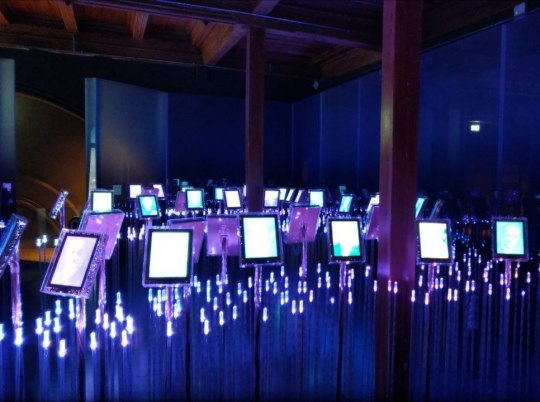
On most of the courses I took, online participation counted as 20% of the final mark. But you may be wondering how participation is assessed in an online environment. I will try to explain it.
The participation portfolio
Usually, by the end of the semester, we have to submit a participation portfolio, for which we have to choose a minimum of five contributions we made to the online discussion forum, written in five different weeks of the course. As each course comprises ten weeks of teaching, the maximum number of posts we can present is ten. However, when submitting more than five posts, we may choose more than one contribution written in a same week, as long as at least five different weeks are represented.
For a text to be marked, it has to be written during the correspondent week of teaching, or the following week. In other words, during a two-week window from the launch of the weekly theme.
The maximum number of words for the entire participation portfolio, including footnotes and references, is five thousand, regardless of the number of posts presented. It means that if you regularly use more than five hundred words for each text, you will not be able to present all the ten posts. If you are looking for higher grades, this may be a problem since offering a higher number of posts seems essential to perform better in the activity.
But what is participation anyway?
Participation is not only about showing that you read and understood the relevant material. It is about critical thinking and engagement, both with the readings and with colleagues. But those skills may be displayed on different posts.
From my experience, I have noted that texts which do not read as short essays but are written in a conversational style are valued. Therefore, I try to establish dialogues with other students, building on their views and adding arguments from my personal and professional perspective. Those attitudes, or even asking questions, seems to positively contribute to the discussion and the learning outcome.
As for the key readings of the course, when I refer to them, I try to summarize the main arguments in a few words. But it is also essential to search for other relevant readings on the subject and add those references to the discussions, showing that you are capable of independent research.
The mini-portfolio feedback
Although at first glance the experience may look different and even frightening, since this is not the most common method for assessing the participation of students, at least not in my country, there is no reason to fear.
By the middle of the semester, students may submit a mini-portfolio including three posts for receiving non-marked feedback. I consider that those feedbacks were crucial for understanding what was expected from me and setting the right tone for my participation. Therefore, I recommend students to try to get the best of mid-semester feedback, submitting the mini-portfolio, reading the feedback and applying it to the weekly contributions. Overall, I believe that the feedback I received from the professors has improved my academic writing. Do not miss this opportunity!
0 notes
Text
Student Representative and HEAR Achievement
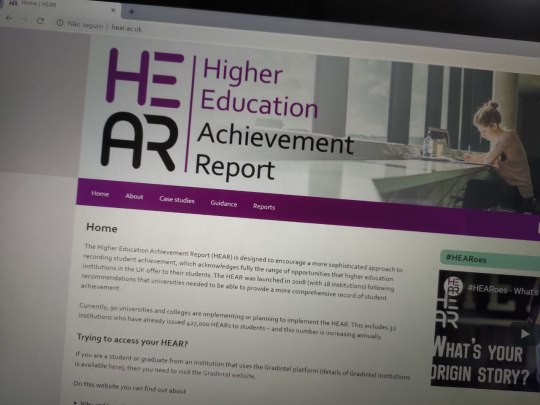
Even as an online LLM student at The University of Edinburgh, it is possible to voluntarily take part in student representation roles. I was a student representative for the Information Technology Law course during my first semester. There are also positions for those who want to be programme representatives.
You may be thinking: why would anyone who works and is studying for an online LLM volunteer for being a course representative?
Well, first, it is important to clarify that it did not take much of my time.
Second, it made me interact with more colleagues than I would have if I was not a rep. So, building on my last post, if you want to increase your network, this may be an alternative and interesting way to do it.
Third, I believe it was a way for me to contribute to the University. Being a rep allows you to help, even if just a little, to the improvement of your programme.
Fourth, it will be registered in my HEAR (Higher Education Achievement Report). The HEAR is a single record of my learnings and all my achievements during the course. Besides being a way to earn recognition for the time and effort placed in the activity, it enriches the curriculum vitae. For those who want to show leadership skills and present something different when applying for jobs, I believe that the record will demonstrate a higher level of commitment. For sure, I would positively consider it if I was reviewing CVs for candidates applying to be my assistant, for example.
For HEAR to be achieved, there are some requisites. I had to take a quick online course which explained what my role was and what was expected from me. I also had a "virtual meeting" with the course organizer, delivering to him the feedback gathered from my colleagues. Lastly, I had to fill an online form summarizing the experience and the issues encountered.
Lastly, it was personally rewarding.
Nevertheless, reaching the same conclusion that I have achieved in my last post, I believe that this is also an activity which loses something when you do it online. If you are an on-campus course representative, you will interact with a lot more people, and you will be able to attend meetings from the Students' Association. For example, I received many invitations through e-mail but was not able to participate in the "Rep Learning Lunches hosted by the Students' Association". Notwithstanding, I am not saying that you should not be a rep if you are an online student: I am only saying that the experience will not be as complete, but I believe that it will still be enriching and have positive outcomes in the long run.
If you would like to know more about student representation, take a look at the Edinburgh University Students' Association website.
0 notes
Text
Interacting with classmates in an online environment
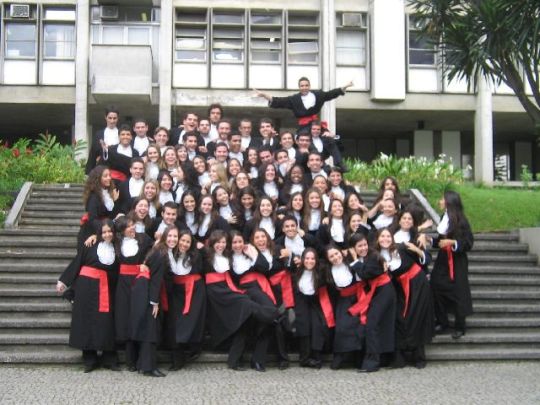
When I talk to Brazilians who travel to another country to attend a face-to-face LLM, it is clear that the experience of living abroad is a crucial factor for them.
However, it is not the only one. Another element that people take into consideration when choosing which university to attend is the possibility of building international networks. Some people who I have talked to think it to be more important than the reputation of the course or scholarships, since they believe it may contribute to their future work opportunities.
Indeed, establishing connections with colleagues is a valuable element to consider when taking an LLM.
In this context, it seems to me that people feel insecure about how they can interact meaningfully with peers in an online environment.
The University of Edinburgh offers a general discussion forum for LLM students in which we may exchange general ideas. However, it is not like a chat room. People usually introduce themselves, talk about what they do, and exchange a few messages, but do not develop long public talks. Do not expect it to be the same chat you have at the pub with your fellow students after class.
What I have noticed is that most online students are already well-established professionals in their fields, often related to the LLM speciality that they choose. Another interesting circumstance is that I have some colleagues whose first degree is not law, but medicine (for the Medical Law and Ethics LLM) or courses related to information technology (for my LLM or the Innovation, Technology and the Law LLM), for example.
Also, I believe that the average age range is older than the one for on-campus LLMs. For me, the more mature public is an expected trait, since factors that seem to weigh when people choose an online master's degree are not having to be apart from their family or interrupting their job routines. In contrast, as for younger people, recent graduated tend to have fewer bonds in life.
In this context, it does not seem that most students are taking the course for establishing a network, but for the degree itself.
Nevertheless, I have interacted with a few other students through email, and we have talked about the classes we are taking and exchanged suggestions for future courses or readings. Yet, considering that we all work, the time we spend reading and studying for the course does not allow the conversation to become longer.
Hence, if you are looking for an LLM to create business connections, perhaps choosing the online course is not the best investment for you.
But if such an element is not so important to you, do not be afraid: you will not be alone during your online experience. There will be other people doing the same thing, and there will be ways to interact with them.
I have discovered that my peers come from all around the world. It is the most diversified class I have ever studied with, and I believe the reason is that technology makes education more accessible and inclusive. Their mixed professional background contributes to elevating the level of discussions, which are not only theoretical but practical and with a high degree of experience.
So, if could go back to the time when I was a young recent graduated lawyer, studying to take public exams to become a prosecutor, I would choose this online course instead of the one I took personally at Rio de Janeiro State University. Networking does not matter for those who opt for public service in Brazil, and the experience at The University of Edinburgh has been more enriching. However, the younger me could never understand it. I had to go through both experiences to evaluate it.
1 note
·
View note
Text
Media Law

Photo: Shanghai Oriental Pearl TV Tower
Another course that I am taking this semester is International and European Media Law.
As I have posted before, I love discussing free speech. However, at the age of the Internet, we must first examine what can be considered a medium. Can the Internet be considered medium by itself? Or is it a media vehicle? And what about streaming platforms, are they under the same laws that regulate television?
Once we have established what is a medium, we start the next set os questions: is freedom of the media the same as freedom of expression? What about freedom of the press? How do these expressions differ, if they do at all? Are citizen journalists entitled to the same degree of protection as professional journalists? What rules apply to user-generated content? What about this blog?
The limits of amateur and professional activities become blurred when, on the one hand, online platforms designed for ordinary users are utilised for exhibiting professional work and, on the other hand, regular users become influencers or publish information of public relevance.
Continuing our discussion, what is the role of public service broadcasting on the information age? And does the Internet contributes to increasing or decreasing media concentration? Does it create new forms of concentration, such as intermediaries, social media and news aggregators?
Lastly, hate speech, defamation and chilling effects: what is the novelty brought by the online world?
I could keep asking those questions forever, and we would not reach a conclusion so soon. During the course, we have discussed all those issues and others, from the European and international law perspectives.
Overall, my feeling is that we can adjust a few existent rules to fit on the Internet age, such as the national regulation of the content of streaming platforms, which is possible by the use of geoblocking technology. Even though a tech-savvy user may be able to overcome it, it will prevent most people from accessing the material deemed illicit locally.
However, we must also think about creating a distinct set of rules for many current problems, such as the role of social media and news aggregators. These are innovative ways to facilitate user access to the news.
Nevertheless, the rules regulating speech cannot be too strict or too broad. Otherwise, people will refrain from exercising freedom of expression, for fear of the sanction that may be applied to them (chilling effect).
It was a smaller class, with fewer students. There were no more than 10 active learners per week. This gave us the possibility of interacting more and in a more meaningful way.
This course was assessed differently. The mid-semester assessment was a blog post (20%). For the participation mark (20%), during the entire semester, we had to write four reflective diary posts displaying our key learnings on the previous weeks, instead of a participation portfolio including weekly posts. For the final assessment (60%), it was the traditional essay, though.
Once again, it was an enriching course.
0 notes
Text
Coronavirus and Hints for Online Learners

Due to the coronavirus pandemic and the fact that Universities all around the world are migrating on-campus students to online classes (such as Harvard and universities from California), I thought I could make a special post about online learning to all LLM students.
First, let me say that there is no reason to panic, dear colleague!
Although I understand that you probably chose an on-campus course because you wanted to interact with people, physical contact is the one thing you do not wish to have right now, right? However, there is no reason to believe that your study will be compromised. Your online student experience can positively surprise you. Therefore, what are the essential tips to succeed in your online LLM, in my opinion?
First, choose a comfortable and quiet place to study, away from distractions. Choose a good chair (your back will appreciate it) and set the brightness settings of your computer screen to a level that makes your eyes feel comfortable.
Second, make time for it. Make plans and execute them. Create your routine. Reserve your study hours in advance and keep your mind concentrated during that period.
Third, establish priorities. What is the most important assignment you have with the closest deadline? This is the one you should be focusing on.
Fourth, make good use of the online resources offered by your school. Explore tutorials.
I believe that, once those four steps are guaranteed, you will see that you can get more out of your online study time than what you get in person. After all, you will not have to travel to and from college or arrive in class before it begins. Plus, you will not be distracted by conversations with your colleagues (your pet may distract you, though...).
Furthermore, since we are all stuck to our homes, I recommend that you take your time to read books and papers and write your essays in advance, whenever possible.
My Conference in Greece (the UNU-EGOV 13th International Conference on Theory and Practice of Electronic Governance), about which I posted before, was postponed to September, and I will not be able to attend it. I am really disappointed with this since I spent time and effort to prepare the paper that was selected. Therefore, I will have to withdraw it to keep it unpublished and try to use it another time. I have lost money, though.
Being someone who already has an on-campus Master of Laws degree, I may say that, on the one hand, you lose something when you stop interacting in person with colleagues. However, on the other hand, you also gain something when you are forced to study all by yourself: you increase your self-discipline and improve your writing abilities.
The online learning environment from the University of Edinburgh is very well developed since they have been offering distance learning LLMs for a while now. But I can't know how new online universities will perform.
In the end, I believe that with this crisis, online courses will grow even more in importance.
0 notes
Text
Balancing Online Study With Work and Life
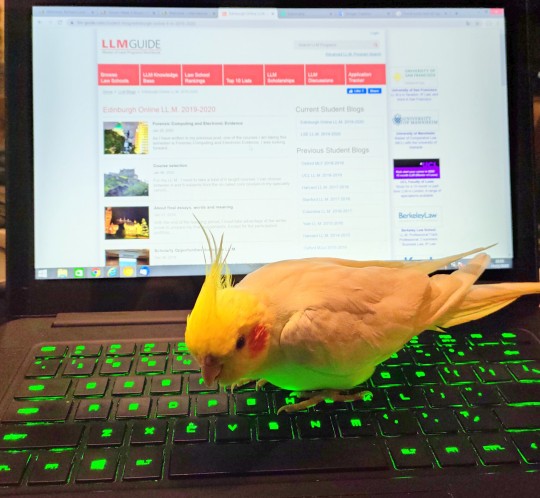
For me, one of the most appealing aspects of an online LLM is the possibility to study at a foreign university without having to leave home or interrupt my work.
In theory, it is perfect. The reality, however, is challenging and discipline is crucial.
My course at the University of Edinburgh, although extremely interesting, has been demanding. The volume of reading and writing is enormous, as I have written in a previous post.
The fact that the study is asynchronous helps me because I try to plan my duties ahead each two weeks. But sometimes unforeseen events take place: sometimes I may have to work more; other times my mind becomes lazier for intellectual thinking (yes, sometimes this happens, and I just can't read or write for a couple of days). Then I have to review my original schedule. But as the discussions for each session of the LL.M. occur over a period of two weeks, so far I haven't had any problem to comply with the deadline, not even when travelling for vacation.
Brazil is in the southern hemisphere, and Scotland is in the northern hemisphere. It means that summer vacations do not match. However, since I never travel for more than two weeks each semester, I have been able to adjust my duties until now.
Holidays are another vital part of my planning. I consider it especially important for preparing the mid-semester and final papers.
Additionaly, I find it very important to find a calm and comfortable place to study at home. Yes, my pet is always by my side during the day, but somehow he (it's a he) understands that I need concentration and remains quiet (for most of the time, at least) while I am using the computer. Plus, luckily, my mind works better at night when my pet is already sleeping, and the streets are silent. Most of my reading and writing is done from 8 p.m. to 2 a.m.
And please, do your back a favour and buy yourself a good chair! When we move to another place to study, we spend money on renting a pleasant apartment, right? When studying online, a good computer with a decent internet connection and a comfy chair are crucial. Don't forget that you will be looking at the computer screen for extended periods, to read complex texts: adjust the brightness and the light. I believe that the quality of the learning improves when we pay attention to these elements.
I have friends taking online courses who like to study at local libraries. I'm not too fond of this idea because I feel more comfortable at home. Also, I like to grab a snack, take a soda, a coffee or an energy drink (yes, it works for me) while I'm studying, and I wouldn't be able to do this at a library. But I agree that libraries are a good solution for people who can't find a quiet place at home.
After all, I believe that the key to balance work with an online LLM is time planning and discipline. If you are following your schedule and something goes wrong, you will have plenty of time to adjust it!
1 note
·
View note
Text
Forensic Computing and Electronic Evidence
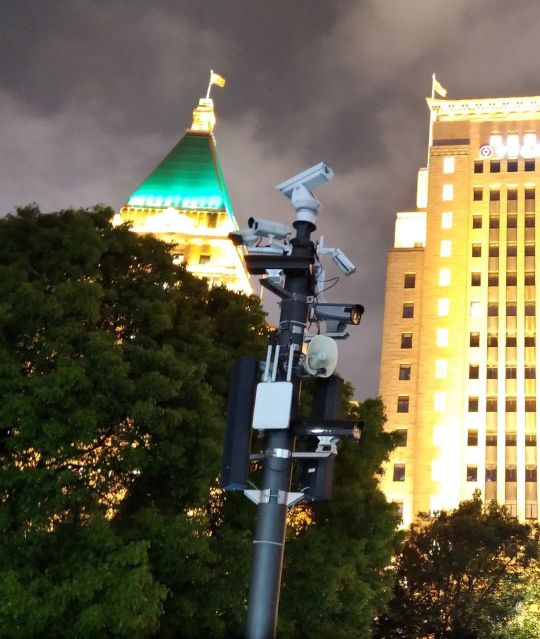
As I have written in my previous post, one of the courses I am taking this semester is Forensic Computing and Electronic Evidence. I was looking forward to it, and I am glad to inform you that it is meeting my expectations.
Although at first it is possible to think that the topic of electronic evidence is of interest only for cybercrimes, the truth is that it is a type of evidence that can be used to help solve any kind of offence. It can even be used for civil proceedings.
Everything we do nowadays leaves a digital imprint. If we request transport by mobile phone, our origin and destination will be stored on the device.
Even if we go on foot, the GPS can deliver our location. Is the GPS off? Bluetooth also? No problem, the radio base stations that our device will necessarily use to establish connection will hand over our estimated route. What if we choose to leave the phone at home? Security cameras will probably capture our way, not to mention other people's cameras, especially if we go through tourist attractions. Look out for the selfie!
Therefore, pieces of digital evidence are everywhere, all the time. What we, jurists, must do is learn how to find the ones that are useful to our case. Once we find them, we must determine how we will collect it, guaranteeing the chain of custody of something that doesn't exist in the physical world, and that may be altered only by accessing it in some cases.
Also, we must analyse and interpret the evidence accurately. How much can we trust virtual material? Do we have access to the metadata? Is the date on the file the exact date? What is the time on the computer the data was generated? Did someone, on purpose, created a fake file or compromised data integrity?
Therefore, as our daily lives become digital, the courts will be forced to consider digital evidence. Ruling on the admissibility, however, may be more complicated than it seems and may demand digital forensics.
In Brazil, although we are moving to fully digital courts, we still have some old procedures on paper, as I believe many judicial systems around the world still have also. This fact creates extra difficulties. How will digital evidence be presented? Will it be printed? What about mobile phone data? As in Brazil the means of proof are free, the solution usually found is to record the digital files on a medium, such as a DVD, which is then placed in a bag and stapled (!) to the procedure sheet.
So far, Forensic Computing and Electronic Evidence is the busiest course I have taken for the LL.M. There are 19 students from different backgrounds and discussions are really paying off. Some of those students are not from a legal background (they are engineers or IT professionals) and learning from their perspective has been enriching. It has been fun, and I have been learning a lot! Especially how not to become a victim of cybercrimes...
0 notes
Text
Course selection

For my LL.M., I need to take a total of 6 taught courses. I can choose between 4 and 6 subjects from the so-called core courses in my speciality (which are core programme requirements), up to 2 from optional group one and 1 from optional group two, with the latter needing the approval of the programme director.
I intend to focus only on the primary subjects of Information Technology Law because there are many exciting topics to choose from the core range. I think that expanding the range to other fields would make me escape the purpose of my education.
As you know, I already took the Communications Law and the Information Technology Law courses, for which I dedicated specific posts.
For the semester beginning next week, I'm taking the courses on International and European Media Law and Forensic Computing and Electronic Evidence. I expect this to be an inspiring semester.
As for Media Law, free speech has always been one of my favourite law themes. Which constitutionalist do you know who doesn't like to discuss freedom of expression? I wrote my first paper about free speech online back in 2008, in Portuguese, and I think it is still a necessary discussion. With the growing tendency towards hate speech online, it is even more essential today than it was back then.
And I'm really looking forward to taking Forensic Computing and Electronic Evidence since, as you know, I am a Public Prosecutor, and I believe this course will have an immediate impact on my daily professional activity. As our society becomes digital, evidence of crimes also migrate to the digital world and learning to deal with it requires updating and reviewing basic concepts.
Lastly, I intend to take the Law of Robotics and the Information: Control and Power courses, completing my schedule. Law of Robotics seems to be one of the most popular courses, and it seems to attract many students from other programs, for obvious reasons: automation is our foreseen future.
Among the Core Courses, the ones I did not choose were EU Data Protection Law and Electronic Commerce Law.
Although I find Data Protection Law to be a fascinating subject nowadays, the exclusive focus on European Union Law may not be so useful for me. However, I do recognise that, due to the Cambridge Analytica scandal, Europe is at the heart of world discussions on data protection law.
As for Electronic Commerce Law, although it could be useful in some of my professional activities (in Brazil, prosecutors do not only act on criminal cases but also defend collective rights in courts, including the right of consumers), I don't think it's such a theoretically challenging field, and it is more related to private law.
If I were to choose courses from other groups, my favourites would be the Governance of Innovative Medicine, the Biotechnology, Bioethics and Society or the European Competition and Innovation courses.
The University of Edinburgh is very prestigious in the field of Medical Law <https://llm-guide.com/lists/top-llm-programs-by-speciality/top-llm-programs-for-health-medical-law>, and relating technology and medicine is the next frontier. As we move from "the internet of things" to "the internet of bodies", it is not only about we relying on our wearable devices such as smart bands, smartwatches and even smart running shoes, but it is about smart healthcare. It's about using algorithms to make diagnoses and proposing treatments, it's about providing medical assistance through the internet and even performing surgeries by distance, and it is about securing your medical data.
As for innovation, it is also a trending topic, but it would be my last choice since I think other options are more attractive.
0 notes
Text
About final essays, words and meaning

With the end of the teaching period, I must take advantage of the winter break to prepare my final assignments.
Except for the participation portfolio, which refers to our weekly contribution in the discussion forums of the courses, all assignments at the University of Edinburgh are submitted anonymously and evaluated by the teachers without them knowing who wrote it. I trust this is an appropriate and fair method of assessment since it rules out any allegations of bias in the awarding of grades.
The University sets a maximum number of words for the texts. In my country's legal education, culture is the opposite, as teachers tend to ask for a minimum number of pages for legal papers. It seems to me that at least some of my classmates from jurisdictions other than Scotland have also been trained to write a minimum number of words. In this context, to limit our legal writing during the LL.M. tends to be an extra challenge.
Although I am also in favour of simplifying the legal language in order to make it more accessible to the people, I must recognise that legal science is endowed with traditional expressions and technical terms that we cannot abandon. Depending on the subject, our argumentative burden may also require a longer explanation in order to demonstrate our point and convince the reader.
Therefore, to comply with the size limit, I find it essential to be able to synthesise arguments in a meaningful way and cut unnecessary words, such as adjectives unless when it is vital to emphasise a thought.
Moreover, the philosophy of language teaches us that words are loaded with meanings. Proper understanding of the meaning of words in the language in which one works - in this case, English - is essential for a lawyer.
Those who watched the Darkest Hour movie must remember a scene in which, after Churchill's fiery speech, Halifax states that "he mobilised the English language". In other words, lawyers must be able to mobilise the language to prove their points: words are our tools.
But being able to comply with the size limit is only half of the problem, and it is easier when we know what to say and how we want to say it. Therefore, the final work is also the time to show how well we understood the content taught throughout the semester and our ability to operationalise it.
Back home, the court is also on Christmas break, which will give me time to devote myself entirely to the essays in the coming days, I hope.
I'll leave you with a picture I took in December 2018 from the Peace Palace, at the Hague, wishing you all a Merry Christmas!
1 note
·
View note
Text
Scholarly Opportunities during the LL.M.
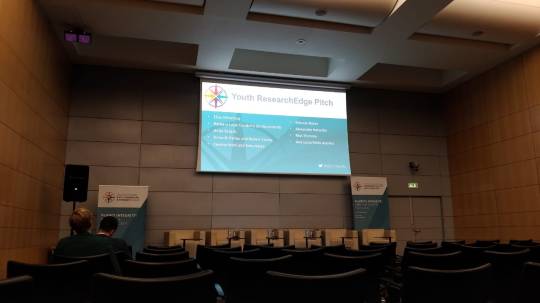
For those seeking to pursue a doctorate in the future or to have an academic career, I recommend taking advantage of the LL.M. period to develop other scholarly activities, enriching and strengthening the curriculum.
Regularly, all types of journals and events publish "call for papers" (the most common name), or “call for abstracts”, or “call for proposals”. Many of those calls opt for blind peer-review process, in order to assure open and honest critiques. Some are specific to the legal sector, and others are multidisciplinary, focusing on a subject; some are regionals, and others are internationals; universities organise some, and international organisations promote others.
Also, when the organisation of the event charges fees, usually master's degree students are entitled to discounts, and scholarships may be available. Some calls may even be considered competitions or awards and provide full reimbursement of travel costs.
Forums and conferences are appropriate places to exchange ideas with different people and keep in touch with the most up-to-date discussions.
I choose carefully the calls that I take part, but I have always been successful in those that I wanted, which makes me very happy. At the international level, my papers were selected two times.
My first experience was at the OECD Anti-Corruption and Integrity Forum. I answered the Call for Papers and was awarded as one of the Youth Research Edge Winners. The concept of "youth" was to be under 40 years old (remember, we are talking about academic activities!), and since my paper was included in the 10 best submissions ("golden category"), my travel costs to Paris were reimbursed.
This week, I also had two papers accepted for the next International Conference on Theory and Practice of Electronic Governance (icegov), coordinated by the United Nations University (UNU) Operating Unit on Policy-Driven Electronic Governance. Therefore, I will head to Greece next April to present my papers (and I will post about it for sure!).
I had co-authors in both opportunities. I think that researching together with someone else enhances the approach.
Another benefit of attending conferences is the networking opportunity. You will meet new people interested in the same topics or researching the same area as you. An excellent presentation may open other doors for you, among people that will be watching. Once more, after the OECD forum, I was invited to present my research at another international conference, this time in the Netherlands, by people who saw my presentation in Paris.
If you want to go through this path, it is important to keep searching for open opportunities constantly. There are many websites that you can use as a source, just go ahead and google a few right now! And take the chance! Don't wait until you think your paper is perfect as it may be better than you think. And if you get "no" for an answer, you will always be able to improve your work for the next time. But by submitting your paper, you risk receiving a positive response, and I am sure the risk will be well worth it!
0 notes
Text
Information Technology Law

Another course that I am taking this semester is "Information Technology Law". The course has the same title as my LL.M. programme itself.
However, many of my colleagues attending this course are from other Master's programmes such as "Innovation, Technology and the Law", "Intellectual Property Law" and even the general Law LL.M.
It is the most diversified group and the busiest discussion forum, with about 15 active participants each week. It may not seem a lot, but it substantially increases the content posted by students and generates daily activities, since I have to read what they write and sometimes comment on their posts.
The course itself provides an overview of information technology law since the term began to be used. We started by discussing the concepts of cyberspace and cyberlaw, and whether it makes sense to speak of IT law in an era in which all branches of law have a technological dimension. I concluded that, for this same reason, it makes more sense than ever before, since Information Technology stuck it's roots everywhere, from Criminal to Constitutional Law. Therefore, it is not a luxury anymore but a necessity.
We advanced to internet regulation, intellectual property and copyright issues, wondering if the concept of copyright can be satisfactorily adapted to computer software in general, videogames and the internet. We discussed problems related to filesharing, streaming, downloading copyrighted material, memes and parodies, such as the popular Downfall videos, among others. We discussed how Lawrence Lessig addresses culture and creativity online.
We examined who should be considered accountable for making illegal content available online, such as intermediary liability and the role of internet service providers.
Now we are debating online privacy and problems related to data sharing, such as if "data is the new oil" or if we can put a price on data and the role of anonymisation for guaranteeing a free web.
The final topic will be about cloud computing.
We have been comparing different regimes and systems, such as laws from the UK, the US, European Union or international treaties.
The course provided me with a fascinating historical overview and revealed the fast pace of technological changes, showing how our top trending products quickly become obsoletes.
Overall, since this is my first semester, the course has been providing me with a piece of excellent general knowledge in the field. It contributes to the basis of my LL.M. programme. Also, since it is such a diversified group, hearing (actually, reading) from my colleagues' different perspectives has been enriching. Lastly, the course is lighter than Communications Law (which I have analysed in a previous post) since it doesn't demand the same kind of knowledge of technological infrastructures and discuss subjects I'm most familiar with. I am glad I chose this course.
0 notes
Text
How does my LL.M. work?

When I tell people that I am taking an online LL.M. at the University of Edinburgh while working in Brazil, I usually face two reactions.
First, although I claim to be online, they look surprised and need to ask me again if it is really 100% online. When I confirm, they find it sensational that this is possible. Disclaimer: I am 35 years old, and most people that I deal with in my professional relations are older than me.
Second, they ask me how it works. This answer is more complicated. I will try to explain it now.
At the beginning of the semester, I received access to the entire reading list of the courses. I can access the titles online. The amount of online material that I can access through the university system is impressive, I don't feel the need of going to a library or buying more books.
The courses are expected to last 10 weeks of teaching with one week break in between.
Habitually on Fridays, the Professors publish contents directing the reading for the following week. They introduce the subject, highlight the purpose of the texts, which can be papers, book chapters, legislation, case-notes, or even videos of lectures (although more rarely), and ask questions about it. Those questions must be answered in the online discussion forum. However, although the tone is academic, the posts are not supposed to be essay-style, since we are supposed to engage with each other, commenting on the responses of our colleagues. Our answers must also meet word limits.
Our posts are marked for two weeks after the content is launched, so the study is asynchronous. On the courses that I am taking, the online participation counts as 20% of the final mark. My online posts, answering the proposed questions, must be presented in the form of a portfolio of the discussions by the end on the last week. The volume of reading and writing is enormous. Teachers and monitors moderate the discussion forums from Monday to Friday.
During the mid-semester break, one may think that it will be possible to breathe, however, the break came before the mid-semester assignments deadline. Those assessments count for 20% to 35% of the final mark on my current courses and varied from creative exercises to literature reviews.
In January, I will have to present the final evaluations of each course, and they will count for the rest of the grade. These can be essays or case notes, usually on specific topics pre-determined by teachers.
Everything is very dynamic. The fact that the activities are asynchronous and can be done over two weeks works very well for me. I have some flexibility in my work schedule, but sometimes I have court trials that continue until late in the night.
Also, I will be on vacations next month, and I will travel for 12 days. My course activities will not be compromised since I can prepare the posts of the first week of travel in advance, and I can prepare the posts of the second week when I am back.
Maybe, when I face the question of how my LL.M. works again in the future, I'll just refer people to the blog instead of explaining it... Just kidding! :)))))
0 notes